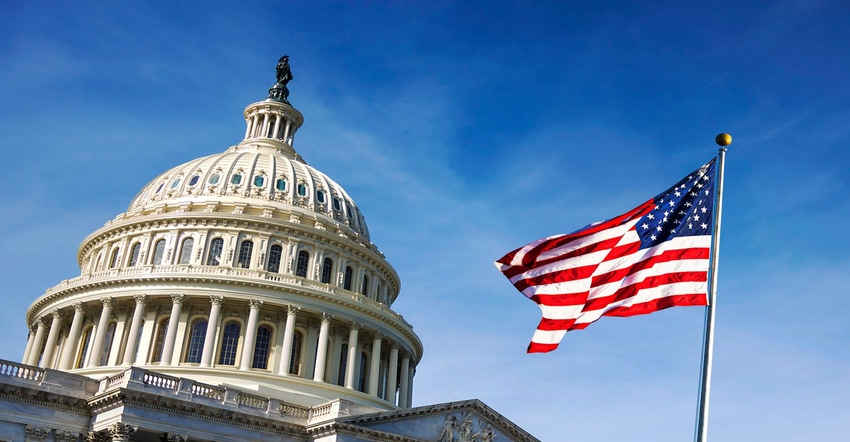The Congressional Dietary Supplement Caucus has been reestablished for the current term. The group is an opportunity for stakeholders to educate lawmakers about the importance of the industry.

The bipartisan Congressional Dietary Supplement Caucus has been reestablished after a hiatus of several years, industry trade organizations announced this week. Stakeholders said it’s a way to drive continued engagement in a market fractured by increasing online sales.
The reinvigorated caucus will be led by co-chairs Rep. John Curtis (R-Utah) and Rep. Tony Cárdenas (D-Calif.). It is expected that over 30 members of Congress will sign on as members.
The inauguration of the new caucus was lauded in a joint press release put out by five industry trade associations: the American Herbal Products Assoc. (AHPA), Consumer Healthcare Products Association (CHPA), the Council for Responsible Nutrition (CRN), Natural Products Association (NPA) and United Natural Products Alliance (UNPA).
Chance for renewed partnership
The official statement of purpose for the caucus reads in part: “to discuss…the benefits of dietary supplements, provide tips and insights for better health and wellness, and to promote research into the health care savings these products provide.” They added “the caucus seeks to enhance congressional attention to the role of supplements in promotion, disease prevention and address the regulation of the supplement industry.”
“I am pleased to re-launch this caucus with Representative Cárdenas,” Curtis said. “The dietary supplements industry is one of the largest industries in Utah and this caucus will serve as an important platform to educate others about the industry and policies that help promote healthy lifestyles.”
“I am thrilled to reestablish the Congressional Dietary Supplement Caucus in the 118th Congress,” said Cárdenas. “As co-chair, I am eager to foster a space for discussion about the many benefits of dietary supplements, the vital role that suppliers and manufacturers play in broadening nutritional options for consumers, and the importance of meaningful research on these issues
While registration of the caucus took longer than had been anticipated due to staff changes and committee assignments on Capitol Hill, “CRN is thrilled to have engaged with federal lawmakers to reconstitute the CDSC for the-118th Congress,” said Julia Gustafson, CRN’s vice president of government relations. “We look forward to working with the co-chairs on future educational briefings for lawmakers and staff.”
One of the chief functions of the caucus, according to UNPA President Loren Israelsen, is to educate new members of Congress on the importance of the industry and what it does both to help consumers and to bring economic benefits to local congressional districts.
“The caucus is a very useful tool to educate members’ staff. We can work with their staff through brown bag lunches and education sessions,” Israelsen said in an interivew with Natural Prouducts Insider. “Covid made it very difficult for a lot of things like caucus meetings to go forward.”
The dietary supplement industry has shown steady growth through the years since passage of DSHEA [Dietary Supplement Health and Education Act of 1994] and today stands at about $60 billion in overall market size in the U.S. CRN puts the total economic impact of the industry for the country at about $159 billion.
Are new companies paying attention?
Some of the industry’s growth may have come at a cost, Israelsen said. An increasing fraction of supplement sales take place online, and a lot of those products are marketed by newer companies that have little connection to older, established companies in the industry, he said.
Many of these companies are tightly focused on mastering the dynamics of online selling and are less concerned with traditional industry emphases, such as scientific substantiation and regulatory compliance. They don’t attend trade shows where industry issues are aired and they don’t support member organizations that work on firming up support for the industry on Capitol Hill, Israelsen said.
That means more work needs to be done within the industry itself on engagement, not just in the nation’s capital.
“The evolution of commerce means that a lot of these companies are ones we haven’t historically rubbed shoulders with. The ‘Amazon-onlies,’ if you will, are invisible to us,” Israelsen said.
“I’m hopeful that younger members of industry will be willing to step up and become engaged. They, too, need to be trained,” he added.
About the Author(s)
You May Also Like






.png?width=800&auto=webp&quality=80&disable=upscale)